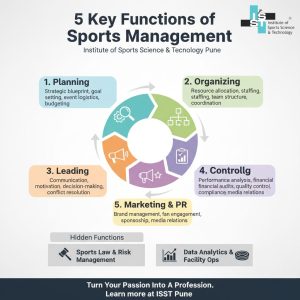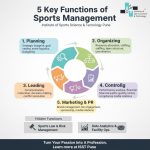All human beings associate with multiple identities or roles. One person can be a runner, tennis player, mother, wife, colleague, etc. Each identity or role has a different weight, meaning and expectation associated with it. When one identity is particularly important to a person, they derive their self-worth based on the success achieved in that field. A person’s evaluation of their identity leads to either high self-worth or low self-worth.
What is Athletic Identity?
By definition, athletic identity is the degree to which an individual identifies with the athlete role and looks to others for acknowledgement of that role (Brewer, Van Raalte, & Linder, 1993). When an athlete has a very strong athletic identity, they associate their self-worth only with their performance in their sport. If they are successful, they have high self-worth, if they are unsuccessful then they have low self-worth.
Early specialisation of one sport wherein children intensely focus only one on sport and exclude other activities can lead to a strong sense of athletic identity. They spend their early childhood playing one sport while eliminating other hobbies and activities, education and social interaction. This tunnel vision prevents a holistic development of their personality.
Having an athletic identity isn’t harmful, but a very strong sense of athletic identity can lead to certain demerits. The first is difficulties dealing with injuries. Injuries are part and parcel of an athlete’s life, but coping with an injury can be daunting if the athlete only associates their self- worth with their sporting performance. An athlete can be side-lined during injuries which can negatively impact their self-worth and confidence. The second demerit is difficulty adjusting to retirement. Athletes in many sports have a limited shelf life, and post-retirement can be especially difficult for athletes who do not have any other roles to gain self-worth and confidence. Thirdly, a heightened sense of athletic identity can lead to over-training and forgoing rest periods which can eventually lead to burnout. Finally, an athlete will suffer from low self-worth and self-confidence when they don’t consider alternate career options or areas of interest and solely focus on one sport but cannot make it to a professional status.
There are also many benefits of having a strong athletic identity. Athletes who have a strong athletic identity show higher commitment towards their sport, they are focused on their sport-related goals and they are internally motivated to stick through rigorous training. They also possess high self-confidence and are sure about who they are.
In the end, it is important for athletes to find the right balance between having a strong athletic identity but not an over-bearing athletic identity. Coaches, trainers and parents can help an athlete to consider who they are as a person in addition to being an athlete. An athlete isn’t going to be considered an athlete forever, they have a life apart from their sporting career.
Activity: Who am I?
Being self-aware and understanding who you are as an athlete and as a person is going to go a long way in developing a holistic personality.
Make a list of all the “I am” and “I like” to understand your personality. Include your strengths, values, interests, hobbies, relationships, and other roles and identities.
- I am a tennis player
- I like to teach young children
- I am a daughter
- I am hard working
- I am kind
- I am a sister
- I am a good friend
- I like to listen to music
- I like to network with people
Make your self-identity lists and share it with us!
Photo Source – Freepik.












